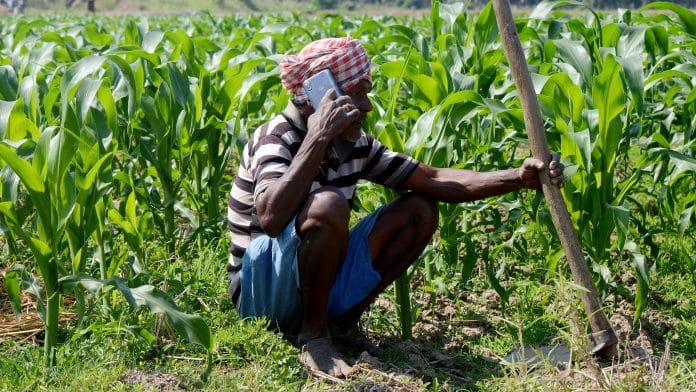New Delhi: In light of Pakistan’s turbulent political phase resulting in the fall of Imran Khan’s government, a fundamental policy challenge for new Prime Minister Shehbaz Sharif is tackling food and hunger—an issue that has remained in the backdrop for years.
For countries in the global south, agriculture lies at the core of addressing hunger. For Pakistan, the numbers have been concerning and plenty in the media, public and business spaces have consistently sounded the alarm. Some of them include Pakistan Businesses Forum (PBF) vice-president Ahmad Jawad, Sindh Chamber of Agriculture president Miran Mohammed Shah, farmer and business owner Aijaz A. Nizamani, and academic Syed Mohammad Ali.
In an opinion article for Dawn, Nizamani wrote that Russia’s invasion of Ukraine has disrupted global supply chains to a point where Pakistani farmers will lose out a great deal—largely because of an increase in the price of wheat in international markets, which is beyond the government-instituted “support price.” However, bigger concerns are inaccessibility to the former financial sector and the role played by bankers.
“Bankers have no institutional means at their disposal to gather meaningful data about farms and rural businesses. They are simply not equipped to make informed investment decisions as far as Agri-financing is concerned. And with non-existent formal financing, agricultural transformation is not possible. So, our population will continue to face food supply issues. Farmers are at the mercy of arthis and local money lenders — though they at least bring some liquidity to farm operations,” Nizamani added.
Also Read: Not your marzi: Islamabad HC has a message for Imran Khan on Toshakhana gifts
Reasons behind food shortage in Pakistan
Alongside these financial hurdles, the agricultural production side has been suffering too, and local governments seem to be exacerbating it with transparency issues. For instance, the government of Punjab, Pakistan’s most populous province, announced in January that it had arrived at a wheat sowing acreage target of 16.21 million, down from its initial goal of 16.70 million. At the same time, it also announced massive expansions in sowing of potato and oil seed crops, citing those as cutting into the wheat goal.
However, Dawn reported that farmers in the province are questioning the credibility of the government’s claims. “Abad Khan, a farmer, thinks the department is defying mathematical logic in claiming wheat acreage. He says the maize crop is expanding, potato has not lost area, oil seed crops are expanding and officials are claiming sugarcane to be bumper this season, where has area for wheat come from?”
Currently, Pakistan government documents claim that agriculture contributes to 19.2 per cent of its GDP, employs 38.5 per cent of the country’s workforce and supports the livelihoods of at least 65-70 per cent of the population. Agricultural production grew by 2.7% nationwide in financial year 2019-20 and the trend continued into FY2020-21, despite a pandemic. During this period, under the Imran Khan government, Pakistan also shifted to being an importer from an exporter, with wheat and sugar figuring as primary import commodities while the country was reeling under the pressure of food inflation.
According to The Express Tribune, Sindh Abadgar Board (SAB) vice-president Syed Mahmood Nawaz Shah cited climate change as a major contributor to the 15 to 20 per cent decline in domestic wheat production at the tail end of 2019-20 FY. Shah blamed his provincial government for initially not taking notice of this decline, and not planning for it with regard to imports.
So, what exactly happened with regards to Pakistan’s agricultural produce? Did the country undergo a ‘Green Revolution’ akin to India’s in the middle of the 20th century? Syed Mohammad Ali believes Pakistan’s agriculture too suffers from the bane of colonial legacy and is a classic case of concentration of resources among small, powerful cartels. Despite increased growth, Pakistan’s ‘green revolution’ damaged local ecology and promoted “inefficient water use practices” by powerful farmers, ensuring that “vast tracts of land are uncultivable”.
Also Read: Pakistanis should worry why their farmers are not protesting like those in India
Solutions to agrarian distress
PM Sharif and his cabinet will not only have to address these historical problems but also continue to grapple with the debilitating effects of climate change on the sector. So what of any possible solutions? Ahmad Jawad, Miran Mohammed Shah and Ali all seem to think innovation is the need of the hour.
For instance, Ali lists out terracing to “improve soil health” and expanding tech by way of laser land leveling and solar-powered irrigation to keep water use and pollution in check.
Jawad and Miran, on the other hand, look to the China Pakistan Economic Corridor (CPEC) for answers, in light of media reports on increased meetings on agricultural cooperation between officials of the two countries. While Jawad stresses the need to “revamp the seed sector” and streamline distribution, Miran calls for the inclusion of more “agro-based projects” in CPEC to expand productivity in the country, and cites ongoing work involving Chinese firms and chili production in Sindh, according to an Express Tribune report.
(Edited by Zoya Bhatti)






